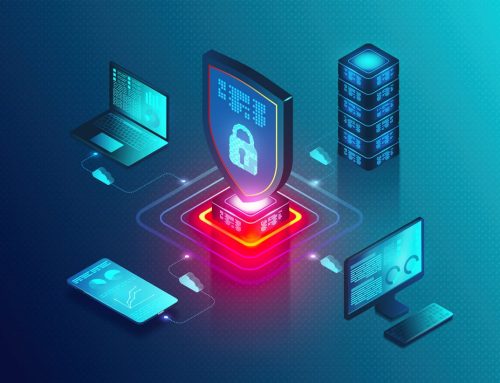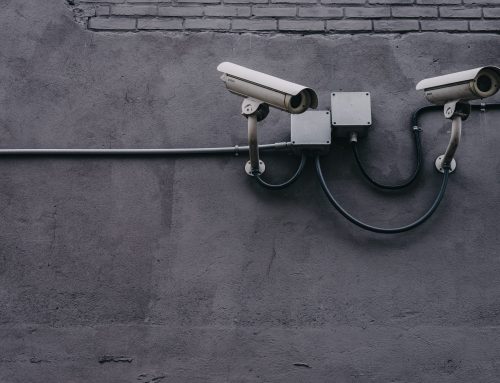In today’s interconnected digital landscape, call center security of customer conversations has never been more critical. To protect customer data and secure the reputation of the business, many companies are seeking new technologies and strategies to enhance their security measures.
With the increasing prevalence of remote work and the globalization of call center operations, the dynamics of ensuring call center security have shifted. In order to protect client data, businesses need to invest in secure communication technologies, implement stringent authentication protocols, and provide training to staff. By prioritizing robust call center security, organizations not only protect customer data but also uphold their reputation and trustworthiness.
Risks Associated with Handling Sensitive Consumer Data

Call centers typically handle a wealth of sensitive consumer data, including personal, financial, and medical information. They are often prime targets for cybercriminals seeking to exploit this valuable data for a variety of illicit purposes.
Identity theft
Unauthorized access to personal information such as Social Security numbers, credit card details, or medical records can lead to identity theft, resulting in financial loss and reputational damage for affected individuals.
Fraudulent activities
Cybercriminals may use stolen consumer data to perpetrate various forms of fraud, including credit card fraud, tax fraud, or insurance fraud, causing financial harm to both consumers and businesses.
Regulatory compliance violations
Call centers are subject to stringent regulations governing the handling and protection of sensitive consumer data, such as the General Data Protection Regulation (GDPR) and the Health Insurance Portability and Accountability Act (HIPAA). Failure to comply with these regulations can result in significant penalties and legal repercussions.
Damage to reputation
A data breach or security incident can have severe consequences for a call center’s reputation and brand image. Consumers may lose trust in the organization’s ability to safeguard their data, leading to loss of business and diminished credibility in the marketplace.
What are Call Center Security Threats?

Call center security threats encompass a broad spectrum of risks that can compromise the integrity, confidentiality, and availability of sensitive information handled within these facilities. They are vital hubs for customer interactions across various industries, including finance, healthcare, telecommunications, and retail.
Because of the amount of customer data they have, they are often at risk for a number of security threats and malicious attacks.
Data breaches
Data breaches involve unauthorized access to confidential information stored within call center databases. Attackers may exploit vulnerabilities in the network infrastructure or systems to gain access to sensitive data such as customer personal information, financial details, or proprietary business data.
Social engineering
Social engineering tactics manipulate call center agents into divulging sensitive information or performing actions that compromise security protocols. Attackers may impersonate legitimate customers or employees to deceive agents into disclosing confidential data or providing unauthorized access to systems.
Phishing attacks
Phishing attacks involve fraudulent attempts to obtain sensitive information, such as login credentials or financial data, by masquerading as trustworthy entities via email, phone calls, or text messages. Call center employees may inadvertently fall victim to phishing scams, leading to unauthorized access to confidential systems or data.
Insider threats
Insider threats refer to security risks posed by individuals within the organization, including call center employees, contractors, or partners, who intentionally or unintentionally misuse their access privileges to compromise sensitive information. Insider threats may involve data theft, sabotage, or unauthorized disclosure of confidential data.
Fraudulent activities
Call centers are susceptible to various forms of fraudulent activities executed by both internal actors and external attackers. These activities may include identity theft, credit card fraud, account takeover, or unauthorized financial transactions, posing significant financial and reputational risks to organizations.
Malware and ransomware
Malware and ransomware attacks target call center systems and infrastructure with malicious software designed to disrupt operations, steal sensitive data, or extort organizations for financial gain. Infected systems may experience data loss, system downtime, or unauthorized access to confidential information.
Physical security breaches
Physical security breaches involve unauthorized access to call center facilities or equipment, potentially resulting in theft, vandalism, or unauthorized access to sensitive information. Lack of adequate security measures such as surveillance cameras, access controls, or security personnel may expose call centers to physical security threats.
To mitigate these threats, call centers employ a range of security measures, such as access controls, cell phone lockers, employee training programs, and encryption technologies.
Call Center Security in Overseas and Work-From-Home Setups
The proliferation of overseas call centers and remote work setups present distinct challenges and heightened security risks for call center operations. As organizations expand globally or embrace remote work, they must address several critical concerns.
Top among these is making sure call centers are in compliance with data protection laws across diverse jurisdictions. Failure to adhere to regulations could lead to significant penalties and reputational damage. Having data compliance measures, including encryption and access controls, is essential to uphold regulatory standards and protect sensitive customer information.
Ensuring the security of network infrastructure is another pressing issue in overseas and remote work environments. Remote locations often lack the robust security measures found in centralized offices, exposing call center systems to increased risks of unauthorized access and cyberattacks. Investing in secure network architectures, firewalls, and endpoint security solutions is crucial to fortify infrastructure against evolving threats and safeguard data integrity.
Establishing secure communication channels needs to be done in order to protect customer interactions and sensitive data exchanged within call center operations. Deploying encrypted communication tools and virtual private networks (VPNs) can help reduce the risk of interception or data tampering during remote communication sessions, ensuring the privacy and security of customer information.
How Can You Reduce Call Center Security Risks?

Mitigating call center security risks requires a comprehensive approach that addresses various aspects of cybersecurity, employee training, and operational protocols.
Implement cybersecurity measures
Effective cybersecurity measures are essential for safeguarding call center networks and endpoints. Utilize robust firewalls, intrusion detection systems, and encryption protocols to fortify the security of network infrastructure.
Deploying advanced authentication methods, such as multi-factor authentication, adds an extra layer of protection against unauthorized access attempts. Regular security assessments and audits are crucial to identify vulnerabilities and ensure compliance with relevant regulations and industry standards.
Provide ongoing employee training
Investing in comprehensive employee training programs is vital to cultivate a security-conscious workforce. Educate call center staff about common cybersecurity threats, such as phishing attacks and social engineering techniques, and provide guidance on best practices for mitigating these risks.
Conducting periodic phishing exercises can reinforce awareness and empower employees to recognize and respond effectively to potential threats. By creating a culture of security awareness, employees become active participants in the organization’s defense against cyber threats.
Establish access controls
Implementing stringent access controls helps minimize the risk of unauthorized access to sensitive data and systems within the call center environment. Tailor access permissions based on job roles and responsibilities to ensure that employees only have access to the information necessary for their duties.
Secure physical access to call center facilities by implementing access control systems, surveillance cameras, and visitor management protocols. Procedures should also be established for securely disposing of sensitive documents and electronic devices to prevent data breaches resulting from improper disposal practices.
Stay up-to-date on emerging threats
Staying informed about emerging cybersecurity threats is crucial for effectively mitigating risks within call center operations. Regularly monitor industry developments and security trends to proactively identify potential threats and vulnerabilities.
Implementing cell phone monitoring solutions enables call centers to track and monitor employee mobile device activity, helping to prevent data breaches and unauthorized access to sensitive information. By staying vigilant and proactive in addressing emerging threats, call centers can adapt their security measures to mitigate evolving risks effectively.
Establish incident response plans
Developing incident response plans is important for minimizing the impact of security breaches in call center operations. Establish clear procedures and an escalation path for responding to the security incidents, including data breaches, system intrusions, or other cyber threats.
Conduct regular exercise and simulations to test the effectiveness of these incident response protocols and ensure that your staff are prepared to handle various security scenarios effectively. Incorporate lessons learned from these exercises to refine and improve response strategies.
Additionally, establish communication protocols for notifying stakeholders, including IT teams, management, and authorities in the event of a security incident. By having well-defined incident response plans in place, call centers can reduce the severity of any security breaches and minimize potential damage to their operations, customer data, and their reputation.
Improve Your Call Center Security
Call center security demands a full strategy that addresses cybersecurity, employee training, access controls, and proactive threat monitoring. Regular monitoring of industry developments and proactive measures, such as employing cell phone monitoring solutions like Cellbuster’s Zone Protector, enables call centers to effectively track and manage employee mobile device activity, mitigating the risk of data breaches and unauthorized access to sensitive information.
By integrating these strategies into their operations, call centers can enhance their security against cyber threats and uphold the integrity of customer data and interactions, ensuring continued trust and confidence.
If you’d like to learn more about our Zone Protector and how it can enhance your call center security, contact us today.







